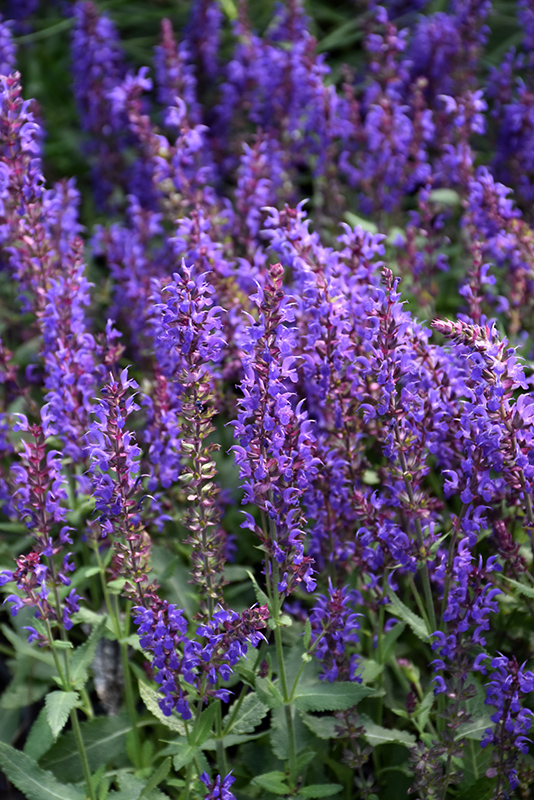Wesuwe Meadow Sage
Description
A stunning variety with an upright, relaxed habit; plentiful spikes of long lasting violet-blue flowers that fade to reveal burgundy calyces, for extended garden color; somewhat drought tolerant; excellent for the sunny border or containers
Landscape Attributes
Wesuwe Meadow Sage is an herbaceous perennial with an upright spreading habit of growth. Its relatively fine texture sets it apart from other garden plants with less refined foliage.
Wesuwe Meadow Sage is recommended for the following landscape applications;
Planting & Growing
Wesuwe Meadow Sage will grow to be about 12 inches tall at maturity extending to 18 inches tall with the flowers, with a spread of 20 inches. When grown in masses or used as a bedding plant, individual plants should be spaced approximately 16 inches apart. It grows at a medium rate, and under ideal conditions can be expected to live for approximately 5 years. As an herbaceous perennial, this plant will usually die back to the crown each winter, and will regrow from the base each spring. Be careful not to disturb the crown in late winter when it may not be readily seen!
This plant should only be grown in full sunlight. It is very adaptable to both dry and moist locations, and should do just fine under typical garden conditions. It is not particular as to soil type or pH. It is somewhat tolerant of urban pollution. This is a selected variety of a species not originally from North America. It can be propagated by division; however, as a cultivated variety, be aware that it may be subject to certain restrictions or prohibitions on propagation.
Wesuwe Meadow Sage is a fine choice for the garden, but it is also a good selection for planting in outdoor pots and containers. It is often used as a 'filler' in the 'spiller-thriller-filler' container combination, providing a mass of flowers against which the larger thriller plants stand out. Note that when growing plants in outdoor containers and baskets, they may require more frequent waterings than they would in the yard or garden.

